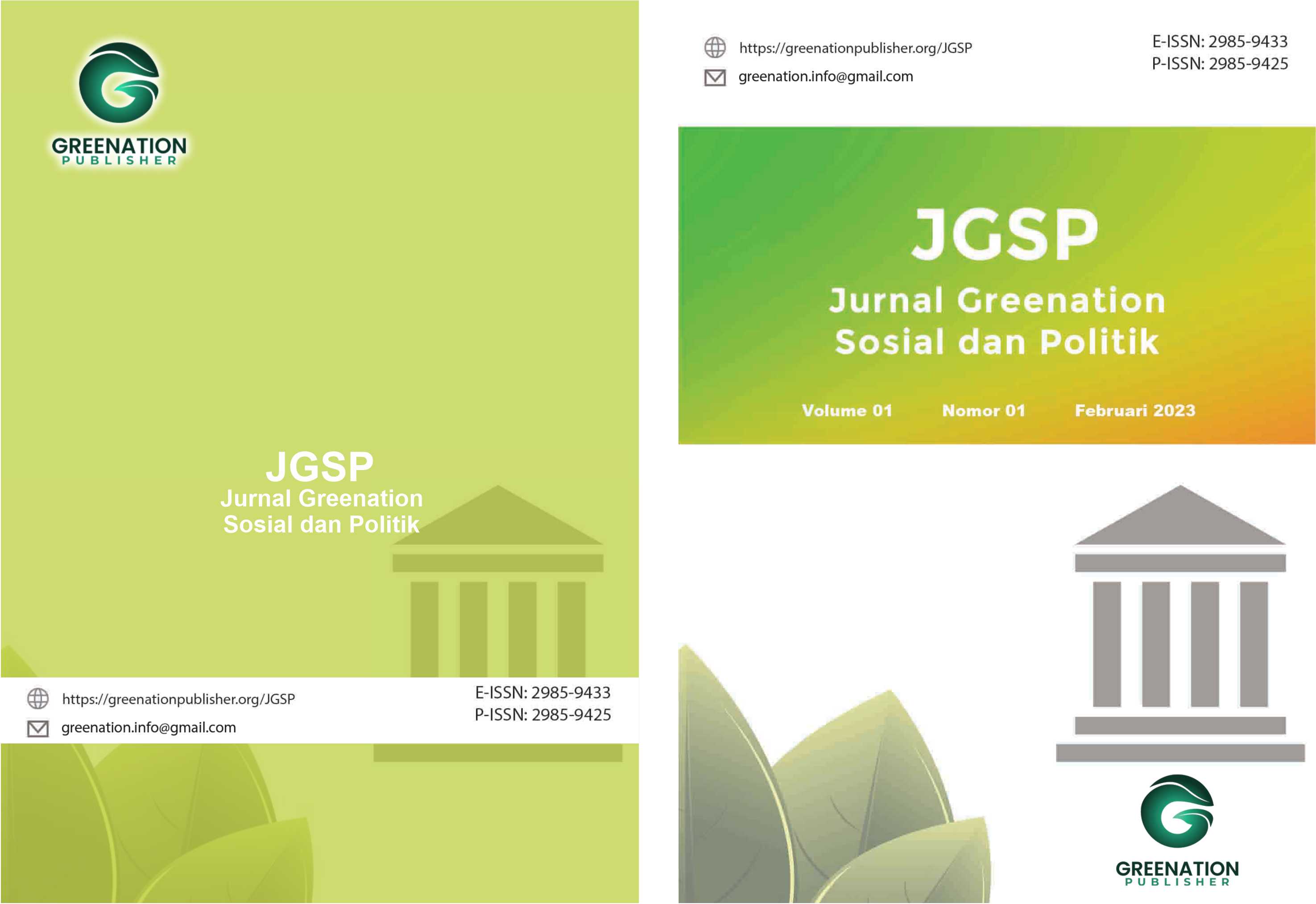Reformulation of Palm Oil Governance Regulations in Forest Areas Towards Legal and Ecological Justice in Indonesia
DOI:
https://doi.org/10.38035/jgsp.v3i2.387Keywords:
Palm Oil Governance, Forest Areas, Legal JusticeAbstract
Ilegal oil palm plantations in forest areas are a serious challenge that threatens legal justice, environmental sustainability, and the well-being of local communities in Indonesia. This research is motivated by the rampant practice of transferring forest functions into oil palm land which often does not have a legal basis, especially in the Central Kalimantan region. The purpose of this study is to evaluate the implementation of law enforcement against illegal palm oil business actors, assess legal certainty based on the principle of justice, and formulate a more equitable legal reform model. The method used is empirical juridical research with legal, conceptual, and case approaches. The results of the study show that the implementation of Articles 110A and 110B of Law Number 6 of 2023 still faces various obstacles, such as overlapping authority, weak law enforcement capacity, and the influence of political and economic interests. Although normatively it has provided a basis for action, the regulation has not been able to realize substantive justice for the community and the environment. Theoretical analysis using the framework of Lawrence M. Friedman, John Rawls, and Jan Michiel Otto reveals the need for legal reform that is adaptive, participatory, and recognizes legal pluralism, including the recognition of customary law. In conclusion, the success of the reformulation of palm oil regulations is not enough with the tightening of administrative sanctions, but must be accompanied by institutional structuring, the use of monitoring technology, and the active involvement of local communities in the legal process. Policy recommendations are directed at the creation of socially and ecologically equitable palm oil governance through a collaborative approach between the state, communities, and business actors.
References
DA, A. T. (2023). Legalisasi perkebunan sawit dalam kawasan hutan dinilai lemahnya penegakan hukum. Hukumonline. https://www.hukumonline.com/berita/a/legalisasi-perkebunan-sawit-dalam-kawasan-hutan-dinilai-lemahnya-penegakan-hukum-lt649ad032b59bf/
Diane, Z. (2011). Implementasi pendekatan yuridis normatif dan pendekatan normatif sosiologis dalam penelitian ilmu hukum. Pranata Hukum, 6, 129.
Fitriani, N., & Prasetyo, H. (2023). Ketidakpastian hukum dalam penataan perkebunan sawit di kawasan hutan. Jurnal Legislasi Indonesia, 20(1), 75–90.
Greenpeace Indonesia. (2021). Forest crime file: Sawit di kawasan hutan. Jakarta: Greenpeace Southeast Asia.
Harjono, D. K. (2023). Hukum agraria Indonesia dalam perspektif Undang-undang Cipta Kerja. Jakarta: Prenadamedia Group.
Harmaini. (2021). Analisis yuridis permasalahan perizinan dan dampak lingkungan perkebunan kelapa sawit di Kabupaten Merangin. Jurnal Hukum STIH YPM, 3(2), 2.
Indonesia. (1999). Undang-undang Nomor 41 Tahun 1999 tentang Kehutanan sebagaimana telah diubah dengan Undang-undang Nomor 6 Tahun 2023 tentang Penetapan Perpu Cipta Kerja menjadi Undang-undang, Pasal 29 ayat (1).
Indonesia. (2023). Undang-undang Nomor 6 Tahun 2023 tentang Penetapan Peraturan Pemerintah Pengganti Undang-undang Nomor 2 Tahun 2022 tentang Cipta Kerja menjadi Undang-undang, Pasal 110A dan 110B.
Kementerian Koordinator Bidang Kemaritiman dan Investasi Republik Indonesia. (2022). Pemerintah lakukan percepatan penyelesaian sawit di kawasan hutan. Siaran Pers Marves.
Kementerian Lingkungan Hidup dan Kehutanan Republik Indonesia. (2022). Laporan Tahunan Direktorat Jenderal Penegakan Hukum Lingkungan Hidup dan Kehutanan Tahun 2022.
Kementerian Pertanian Republik Indonesia. (2022). Statistik Perkebunan Indonesia Komoditas Kelapa Sawit 2020–2022. Jakarta.
Pandjaitan, L. B. (n.d.). Pemerintah akan selesaikan perkebunan sawit dalam kawasan hutan melalui Pasal 110A dan 110B. Kompas.com.
Pahan, I. (2008). Panduan lengkap kelapa sawit: Manajemen agribisnis dari hulu hingga hilir. Jakarta: Penebar Swadaya.
Pengadilan Negeri Ngada. (2023). Putusan Nomor 87/Pid.B/LH/2023/PN Ngb. Direktori Putusan Mahkamah Agung Republik Indonesia.
Purnomo, H., et al. (2016). Governing sustainability of palm oil through hybrid governance arrangements: The case of Indonesia. Journal of Cleaner Production, 124, 263–273.
Rahmawati, N. (2023). Ambiguitas perlindungan hukum terhadap masyarakat lokal dalam Pasal 110B UU Cipta Kerja. Jurnal Legislasi Indonesia, 19(1), 88–90.
Rangkuti, S. S. (2021). Hukum lingkungan: Instrumen dan mekanisme penegakan hukum. Jakarta: Sinar Grafika.
Sawit Watch. (2020). Tinjauan hukum atas perizinan perkebunan sawit di Indonesia. Bogor: Sawit Watch.
Sipayung, D., & Togar, M. (2015). Ekonomi politik kelapa sawit berkelanjutan di Indonesia. Jakarta: PASPI.
Sitorus, R. O. (2019). Sawit berkelanjutan untuk kesejahteraan petani. Medan: Yayasan Komoditi Lestari Indonesia.
Suhadi, Z. (2022). Pemberian pengampunan kepada perusahaan sawit ilegal: Preseden buruk bagi penegakan hukum lingkungan. Wahana Lingkungan Hidup Indonesia, 2–3.
Suryanto, E. (2023). Kontroversi sanksi administratif dalam kasus perambahan hutan: Studi atas UU Cipta Kerja. Jurnal Hukum Lingkungan Indonesia, 7(1), 45–47.
Downloads
Published
How to Cite
Issue
Section
License
Copyright (c) 2025 Royan Siagian, Evita Isretno Israhadi

This work is licensed under a Creative Commons Attribution 4.0 International License.
Hak cipta :
Penulis yang mempublikasikan manuskripnya di jurnal ini menyetujui ketentuan berikut:
- Hak cipta pada setiap artikel adalah milik penulis.
- Penulis mengakui bahwa Jurnal Greenation Sosial dan Politik (JGSP) berhak menjadi yang pertama menerbitkan dengan lisensi Creative Commons Attribution 4.0 International (Attribution 4.0 International CC BY 4.0) .
- Penulis dapat mengirimkan artikel secara terpisah, mengatur distribusi non-eksklusif manuskrip yang telah diterbitkan dalam jurnal ini ke versi lain (misalnya, dikirim ke repositori institusi penulis, publikasi ke dalam buku, dll.), dengan mengakui bahwa manuskrip telah diterbitkan pertama kali di JGSP.
























